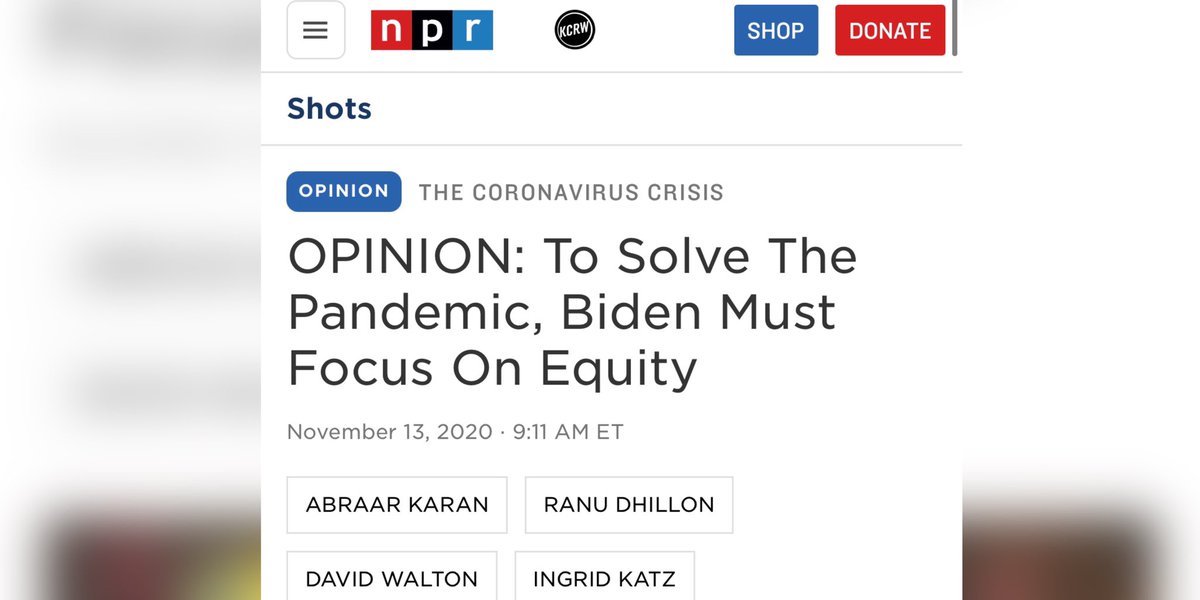
1/ True story of two personal friends- let's call them Jim & Bob- & #covid19. I share this not to shame but to say-- this is likely happening more than we are acknowledging because there is stigma associated with having #covid19 in many social circles.
Short thread
Short thread
2/ Bob was exposed to a #covid19 case recently while socializing.
He didn't quarantine, nor did he tell Jim that he had been exposed.
While they were hanging out, he was notified by phone that his partner tested positive- & he still didn't say anything about it to Jim.
He didn't quarantine, nor did he tell Jim that he had been exposed.
While they were hanging out, he was notified by phone that his partner tested positive- & he still didn't say anything about it to Jim.
3/ When Jim asked, Bob eventually revealed that he had an exposure (while still not revealing his partner had just tested positive).
Jim was pissed & told Bob to immediately get tested.
Bob did-- & ended up testing positive for #covid19.
Jim was pissed & told Bob to immediately get tested.
Bob did-- & ended up testing positive for #covid19.
4/ He then revealed to Jim that his partner had actually tested positive back on the day they had been hanging out.
Jim was even more upset, as many people would be, as he had a pregnant wife at home. Thankfully Jim tested negative & remains so.
Jim was even more upset, as many people would be, as he had a pregnant wife at home. Thankfully Jim tested negative & remains so.
5/ But what we need to ask is why Bob didn't quarantine + get tested OR even be honest w/ Jim about his recent exposure & his partner testing positive.
My guess is that there are multiple forces at play- including fatigue, denial, & a sense of "it won't happen to me".
My guess is that there are multiple forces at play- including fatigue, denial, & a sense of "it won't happen to me".
6/ I think there may also be a sense of "I just don't want to know" - which makes it easier to justify socializing; & removes any possible "blame" that may come from accidentally exposing other friends or family.
Stigma has *always* impeded epidemic control.
Stigma has *always* impeded epidemic control.
7/ This is a problem.
If people avoid getting tested bc they feel like it may cause them more problems to deal with- including social stigma, or being furloughed from work, or it will induce anxiety or whatever other reason, we will continue to have invisible spread.
If people avoid getting tested bc they feel like it may cause them more problems to deal with- including social stigma, or being furloughed from work, or it will induce anxiety or whatever other reason, we will continue to have invisible spread.
8/ Also, if people are terrified of being judged for their choices; for instance, if Bob was afraid that Jim would think ill of him for socializing or careless bc he got exposed to a case, then Bob may not want to know if he is positive at all
Imagine yourself in these scenarios
Imagine yourself in these scenarios
9/ Many of us may well end up in these situations. This is part of being a human being during this pandemic. You will have exposures. They may happen accidentally (most likely will- I don't know many people seeking out the virus); and you will have tough conversations.
10/ This begs the question-- how do we reduce stigma? This certainly is not my area of expertise; @JuliaLMarcus has written about this quite a bit- & I'm sure there are many others who I hope will also opine here.
But this is real; its happening right now, around the world
But this is real; its happening right now, around the world
cc a short personal story I heard today @edyong209 @zeynep @nataliexdean @ASlavitt @T_Inglesby @syramadad @celinegounder @BhadeliaMD @SaskiaPopescu @angie_rasmussen @AliNouriPhD @RanuDhillon @HelenBranswell @kakape @apoorva_nyc @MoNscience @jabarocas @DrTomFrieden @gregggonsalves
cc a short personal story on #covid19 and stigma @NickKristof @ChelseaClinton @carlzimmer @balajis @JohnJHarwood @Alyssa_Milano @Atul_Gawande @CT_Bergstrom @MollyJongFast @paulg @choo_ek @Craig_A_Spencer @DrEricDing
• • •
Missing some Tweet in this thread? You can try to
force a refresh



